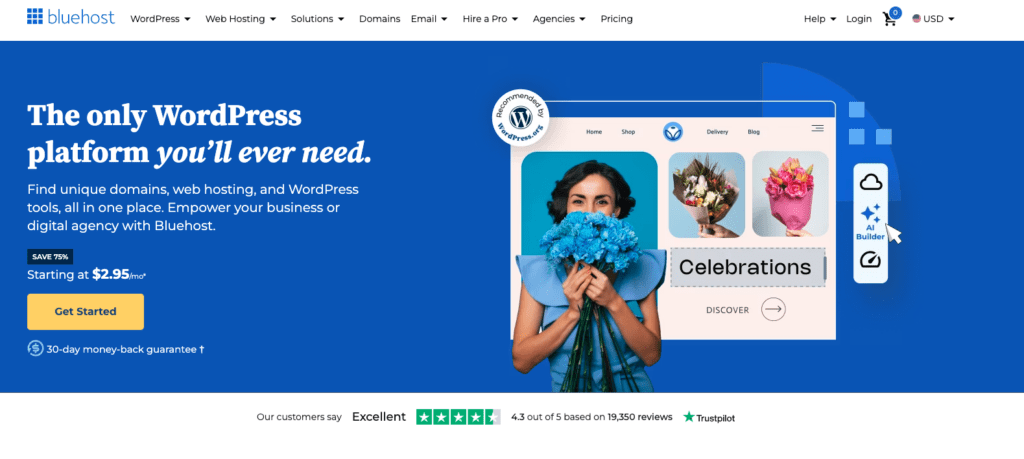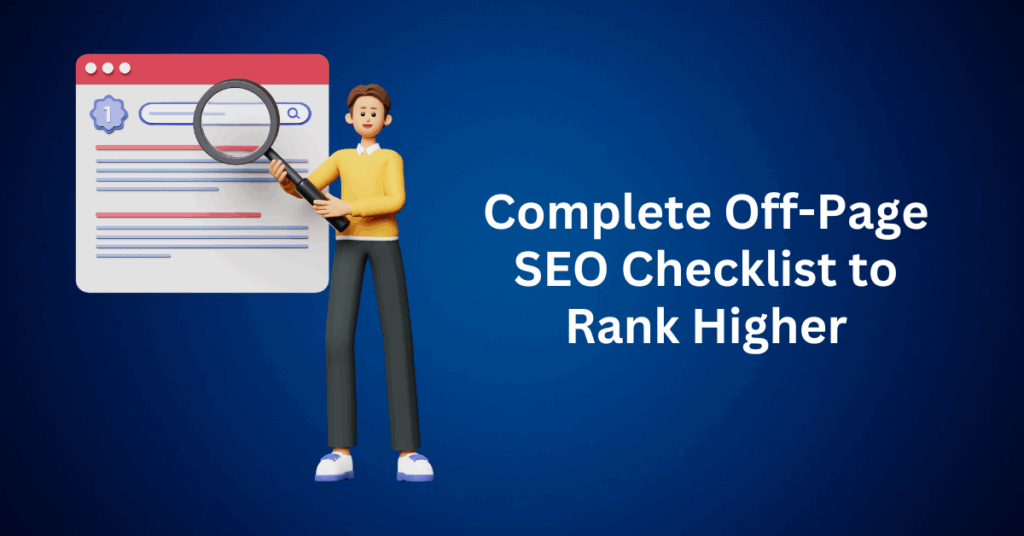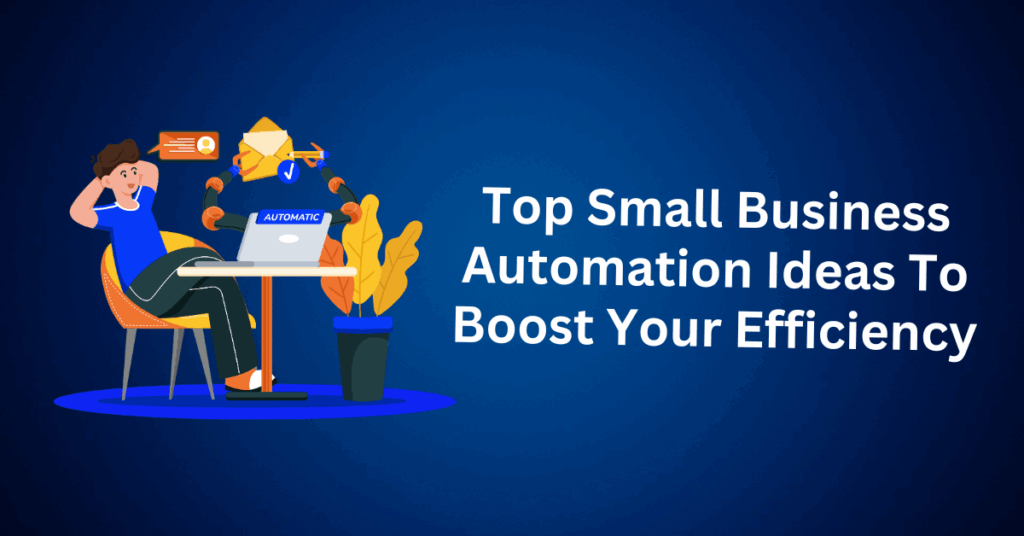You’ve launched your WordPress website, set up your branding, and established your digital presence. Congratulations! Now that the foundation is in place, a critical question arises: can your target audience actually find you on Google? After all, if your website isn’t showing up on the first page of search results, you’re missing out on the majority of potential traffic. The truth is, building a website is only the beginning. What comes next is the real challenge? Earning trust, credibility, and relevance in the eyes of both search engines and your audience. This is precisely where off-page SEO comes into play.
To put it simply, while on-page SEO focuses on optimizing your site’s content and structure, off-page SEO is all about building your reputation beyond your domain. In other words, think of it as digital PR. Just as positive word-of-mouth can elevate a business in the real world, off-page SEO strengthens your website’s authority across the internet.
In this guide, we’re diving deep into the latest off-page SEO strategies. You’ll learn what works, what doesn’t, and how to simplify your efforts without sacrificing results. Along the way, you’ll also discover an actionable checklist, quick wins you can start implementing today, and tools designed to streamline your optimization process.
What Is Off-Page SEO and Why Does It Matter?
Off-page SEO refers to all the external activities that influence your site’s visibility in search engine results. This includes backlink building, social media engagement, brand mentions, citations, and even the way your site is discussed across forums, podcasts, and press coverage.

While Google’s algorithms have become more sophisticated, the core principle remains: search engines trust what others say about your site more than what you say about yourself.
Off-page SEO is more important than ever now because Google increasingly prioritizes EEAT signals:
- Experience
- Expertise
- Authoritativeness
- Trustworthiness
To rank well, your content must be validated by external sources that Google already trusts. Backlinks from high-authority domains, branded mentions across media, and social proof through engagement all serve as signals that your site is a credible and valuable resource.
How Off-Page SEO Impacts Your Rankings
According to recent research by First Page Sage, backlinks alone account for 13% of Google’s ranking algorithm. However, it’s not just about the quantity of backlinks—it’s the quality, context, and relevance that truly matter. The era of spamming links to boost SEO is long gone. Today, the focus is on earning links from authoritative websites within your niche, securing organic mentions on trusted platforms, generating branded searches and shares on social media, and maintaining a technically sound website that supports trust signals.
When off-site SEO is executed correctly, it can deliver powerful results. These include increased domain authority, more qualified organic traffic, higher rankings for competitive keywords, and broader brand visibility across multiple digital channels. This comprehensive approach helps build a strong online presence that search engines and users alike trust.
10 Proven Off-Page SEO Strategies to Rank
So your website is up and running. Great. However, if it’s not earning trust across the web or climbing the search rankings, you’re only halfway there.
In today’s hyper-competitive digital landscape, off-page SEO is what truly sets high-ranking, authoritative websites apart from the rest. While on-page SEO helps you optimize your content internally, off-page SEO focuses on everything happening outside your website that impacts your search engine visibility.
From backlinks and brand mentions to social proof and community engagement, these external signals work together to tell Google, “This site is worth ranking.”
If you’re ready to elevate your visibility and strengthen your online reputation, keep reading. Below is your go-to checklist of essential off-page SEO strategies, practical, proven, and designed to scale your website’s authority the smart way.
1. Build High-Quality Backlinks for Off-Page SEO
Google may have hundreds of ranking factors, but backlinks continue to reign supreme. In essence, a high-quality backlink acts like a vote of confidence from another trusted site, signaling to search engines that your content is credible, useful, and relevant.
However, not all backlinks are created equal. In fact, Google places far more value on links from authoritative websites within your industry, rather than low-quality, spammy directories or link farms.
Types of Backlinks
- Natural backlinks – Earned organically when others link to your content because it’s genuinely valuable.
- Built backlinks – Acquired through intentional strategies like guest blogging, digital PR, or brand partnerships.
- Editorial mentions – Featured in roundups, interviews, or media articles without direct solicitation.
To build a strong backlink profile, consider these proven strategies:
- Create link-worthy content – Publish original research, expert-level guides, or data-driven articles (e.g., “2025 SEO Conversion Benchmarks”). This kind of content naturally attracts citations and shares.
- Guest post on high-DA sites – Reach out with tailored pitches to niche-relevant blogs and incorporate backlinks organically within the content.
- Use broken link building – Tools like Ahrefs or Check My Links can help you identify outdated or broken pages, allowing you to offer your own content as a replacement.
- Partner for co-branded content – Collaborate on webinars, eBooks, or listicles with other brands or influencers. In doing so, you can generate multiple backlinks while expanding your reach.
Pro Tip: Hosting providers like Bluehost offer built-in SEO tools and plugins that simplify the process of attracting organic backlinks. Specifically, their eCommerce Essentials plan includes features designed to optimize your content, improve site performance, and boost your domain’s authority over time.
2. Amplify Off-Page SEO Content Through Social Media
Social media doesn’t just build your brand. It also plays a key role in off-page SEO. By generating social signals and referral traffic, platforms like Instagram, Twitter (X), Facebook, and LinkedIn help distribute your content, boost visibility, and drive user interactions that search engines consider in their ranking algorithms.
To fully leverage social media for SEO impact, consider the following tactics:
- Post consistently with value-driven content – Share blog posts, infographics, expert tips, or short videos that educate or entertain your audience.
- Tailor your content by platform – Use LinkedIn for professional insights, Instagram for eye-catching visuals, and Twitter for timely updates or quick tips.
- Encourage interaction – Include strong calls-to-action like “Save this tip,” “Tag a friend,” or “Drop your thoughts below” to spark conversation and engagement.
- Repurpose content – Turn blog posts into reels, carousels, or quote graphics to reach a broader audience in different formats.
3. Participate in Niche Communities and Forums
One of the most underutilized off-page SEO strategies? Engaging in online communities where your audience already hangs out. Not only does this build your brand’s credibility, but it also opens the door to natural backlinks, mentions, and high-intent referral traffic.
Get Started by:
- Joining relevant platforms: Reddit, Quora, Facebook Groups, Slack communities, or niche forums like the WordPress Support Forum.
- Offering value: Don’t just drop links. Provide well-thought-out answers, actionable advice, and personal insights.
- Contributing consistently: Post weekly, follow threads, and stay active using your brand name.
- Linking back sparingly and only when your content truly adds context (e.g., “We tested this tool and saw a 25% speed increase. Here’s the full guide”).
SEO Tip: Make sure that any link you share is:
- Contextual and helpful
- From a trusted domain
- Visually appealing (optimized metadata, good title)
4. Leverage Brand Mentions and Citations
Did you know that even unlinked brand mentions, where your brand name appears without a clickable lin,k can boost your SEO? These “implied links” act as powerful trust signals to Google, showing that your brand is being recognized and discussed across the web.
How to Get Your Brand Mentioned:
- Get featured in industry roundups and interviews: Reach out to bloggers, journalists, or influencers who curate content like “Top SEO Tools” or “Best WordPress Plugins.” Offering expert insights can earn you valuable mentions.
- Use platforms like HARO (Help a Reporter Out): Respond to journalists’ queries to get quoted in news articles, increasing your brand’s visibility and authority.
- Run PR campaigns or social media initiatives: Launch giveaways, research studies, or tools that are newsworthy enough to spark media and influencer buzz.
- Monitor your mentions: Tools like Google Alerts and Semrush help you track where your brand is mentioned, even if it’s not linked.
Why It Matters: Google’s algorithms analyze these brand mentions alongside keywords and citations, helping to validate your website’s relevance and trustworthiness. Unlike backlinks, they don’t have to be clickable to improve your rankings.
Maximize Your Impact:
- Set up alerts to quickly respond or engage with mentions.
- Encourage media coverage by pitching newsworthy stories.
- Use social campaigns to amplify your brand buzz.
- Track all mentions using SEO dashboards to manage your online reputation efficiently.
5. Collaborate with Influencers to Amplify Reach and Build Backlinks
Influencer partnerships are not just about social media hype. They’re a strategic off-page SEO tactic to drive quality traffic, brand mentions, and valuable backlinks from trusted sources.
For example, a skincare brand should work with dermatologists or beauty bloggers, not just any lifestyle influencer.
Tips for Effective Influencer Collaboration:
- Go beyond simple shoutouts. Co-create content like blog posts, videos, or Instagram reels that naturally incorporate backlinks.
- Provide value: Early product access, exclusive content, or affiliate incentives motivate authentic promotion.
- Track results with tools like Bluehost SEO Checker or Google Analytics to measure referral traffic and backlinks.
Pro Tip: Use content management platforms with optimized templates and user-friendly interfaces to streamline collaboration and produce branded content that resonates.
6. Repurpose Content with Syndication and Press Releases for Maximum Reach
Why reinvent the wheel? Syndicating your existing content and distributing press releases allows you to extend your reach, gain high-quality backlinks, and reinforce your brand authority, all without the need to create entirely new material. This approach maximizes the value of your current content while boosting your SEO and brand presence.
To syndicate and repurpose content effectively, start by using reputable syndication platforms. Republishing your blog posts on sites like Medium, LinkedIn, or GrowthHackers can help you tap into new audiences. Be sure to use canonical tags to avoid duplicate content penalties from search engines. Another strategy is pitching press releases to niche publications. For instance, a tech startup might convert a blog post into a press release and submit it to outlets such as TechCrunch or Hacker News to gain added visibility and backlinks.
Announcing milestones and news through PR distribution services like PRWeb or Business Wire is also highly effective. Sharing product launches, awards, or partnerships can attract the attention of journalists and industry influencers, further amplifying your reach.
The benefits of syndication and press releases are clear: you reach broader, relevant audiences beyond your own site, earn backlinks from authoritative publications, and strengthen your domain’s credibility and online visibility.
7. Harness the Power of Customer Reviews and Testimonials
In today’s digital landscape, customer reviews and testimonials are more than just social proof. They have become critical SEO assets that directly influence trust and search rankings, especially for local businesses. Reviews provide fresh, user-generated content filled with relevant keywords that help search engines better understand your business’s reputation. For example, a local bakery with over 100 Google reviews often outranks competitors for search terms like “best cupcakes near me.”
To maximize the SEO benefits of reviews, start by encouraging customers to leave feedback on top platforms such as Google My Business, Yelp, Trustpilot, and industry-specific sites. Showcasing testimonials on your website is also essential; using customizable widgets or plugins to display star ratings and customer quotes prominently on product and service pages can boost visitor confidence and engagement.
Engaging thoughtfully with reviews is another key strategy. Responding to both positive and negative feedback publicly demonstrates credibility and encourages more user interaction, a factor that Google values highly. Additionally, automating review requests through email or SMS follow-ups after purchases can gently prompt customers to leave feedback without feeling intrusive.
Tools like Bluehost eCommerce Essentials make it easy to highlight customer testimonials with built-in widgets and plugins. This turns your website into a trust-building hub that not only encourages conversions but also improves your SEO performance.
8. Encourage Branded Searches to Strengthen Your Authority
Branded search volume is rapidly gaining importance in SEO algorithms for 2025. When more people actively search for your business by name, Google interprets this as a strong signal of your site’s authority and relevance, boosting your overall search rankings.
To drive more branded searches, start by launching brand awareness campaigns. Targeted social media ads and content marketing efforts can effectively promote your unique brand identity. For instance, a local coffee shop might run Instagram ads showcasing their signature blends to encourage searches like “Best espresso near me.”
Creating shareable and memorable content is another powerful strategy. Viral campaigns, engaging blog posts, or branded hashtags can get people talking about your brand and increase the likelihood they’ll search for it online.
Finally, maintaining consistent branding across all platforms is crucial. Ensure your business name, logo, and messaging are uniform on your website, social media channels, and advertising. This consistency helps customers easily recognize and search for your brand, reinforcing your presence in search results.
9. Optimize for Local Citations to Boost Your Local SEO
For businesses serving specific geographic areas, local citations are an essential pillar of off-page SEO. Consistent and accurate business listings signal to Google that your company is legitimate and active in the local community, which is crucial for ranking high in local search results.
A few key strategies can help you build strong local citations. First, submit your business information to major directories such as Google Business Profile, Yelp, and TripAdvisor. It’s important to ensure your NAP (Name, Address, Phone number) details are identical across all platforms to avoid confusion and potential ranking penalties. Next, target niche and hyperlocal directories. For example, if you run a restaurant in New York City, getting listed on NYC-focused food blogs or local review sites can significantly boost your local authority.
Another effective approach is to encourage user-generated local mentions. Engaging with local bloggers, journalists, and influencers who often feature neighborhood businesses can increase your visibility. Additionally, ask satisfied customers to tag or mention your business on social media or local forums to amplify your presence.
Overall, consistent and accurate local citations not only improve your visibility in geo-targeted searches but also build trust signals that Google uses to rank local businesses higher.
10. Monitor and Improve Your Off-Page SEO Efforts Continuously
SEO is a marathon, not a sprint. To ensure your off-page strategies are effective, regular monitoring and optimization are essential.
What Metrics to Track:
- Number and quality of backlinks
- Social shares and brand mentions
- Volume and trends of branded searches
- Referral traffic sources from external sites
Best Tools for Off-Page SEO Monitoring:
- Bluehost SEO Checker: Perfect for WordPress users, this all-in-one tool tracks backlinks, brand mentions, and provides real-time optimization insights.
- Ahrefs: Offers detailed backlink analysis and competitor insights.
- Semrush: Comprehensive brand mention tracking and backlink audits.
- Moz: Monitors domain authority and uncovers link-building opportunities.
- BuzzSumo: Finds high-performing content and influencer outreach options.
- Google Alerts: Notifies you of new brand mentions online.Google Search Console: Provides data on incoming links and referring domains.
Why Monitoring Matters:
Regularly analyzing these data points lets you refine your strategies, capitalize on opportunities, and fix any issues before they hurt your rankings. Remember, off-page SEO thrives when combined with a strong on-page foundation.
Common Off-Page SEO Mistakes You Must Avoid for Lasting Success

Even the most well-intentioned off-page SEO strategies can backfire if you fall into these typical traps. To protect your website’s rankings and maintain a strong, trustworthy online reputation, it’s critical to steer clear of these common mistakes:
1. Chasing Quantity Over Quality in Backlinks
One of the biggest misconceptions in off-page SEO is that more backlinks = better rankings. This couldn’t be further from the truth. A flood of low-quality or spammy backlinks can actually damage your site’s authority and lead to Google penalties. Instead, prioritize earning high-quality backlinks from authoritative, relevant websites within your niche. These valuable links act as genuine endorsements that search engines trust and reward.
2. Overusing Keyword-Rich Anchor Text
Anchor text, the clickable words in a hyperlink, is a powerful SEO signal, but it must be used carefully. Relying too heavily on the same exact, keyword-rich anchor text can appear unnatural to Google and may even trigger penalties for over-optimization. To avoid this, aim for diversity and a natural tone by mixing in branded terms, generic phrases (such as “click here”), and partial keyword variations. Ultimately, this balanced approach enhances link authenticity and helps maintain a healthy, trustworthy backlink profile.
3. Neglecting Social Media Engagement
While social signals (likes, shares, comments) might not be a direct ranking factor, ignoring social media is a missed opportunity to boost your brand’s visibility, engagement, and trustworthiness. An inactive or inconsistent social presence can stall growth and weaken your off-page SEO efforts. Use social platforms strategically to share valuable content, engage with your audience, and generate buzz that can lead to more natural backlinks and brand mentions.
4. Skipping Competitor Analysis
Neglecting to monitor what your competitors are doing off-site means missing out on valuable insights. By analyzing competitor backlink profiles, you can uncover untapped link-building opportunities, fresh content ideas, and emerging industry trends. Moreover, conducting regular competitor analysis helps you pinpoint where you’re falling behind, and more importantly, how to outperform your rivals by targeting the right websites and engaging with the most relevant communities.
5. Ignoring Progress Monitoring and Analytics
Off-page SEO is a long-term, evolving process. It’s not a “set it and forget it” task. Therefore, without consistently tracking your backlinks, brand mentions, social engagement, and referral traffic, you’ll have no clear picture of what’s working or what needs adjustment. To help with this, use tools like Bluehost SEO Checker, Ahrefs, or Semrush to keep a close eye on your progress and fine-tune your strategies for maximum impact.
By avoiding these common pitfalls, you’ll build a solid foundation for off-page SEO that stands the test of time, drives real authority, and boosts your search rankings sustainably. Ready to elevate your SEO game? Let’s keep refining your off-page strategy for ongoing success!
How Bluehost Empowers Your Off-Page SEO Success
Building a strong off-page SEO strategy can feel overwhelming, but with the right tools and support, it becomes a manageable and rewarding process. Bluehost stands out as a comprehensive hosting provider that not only delivers reliable website performance but also offers an arsenal of features tailored to boost your off-page SEO efforts. Here’s how Bluehost helps you elevate your site’s authority and attract more organic traffic:

1. Powerful SEO Tools to Monitor and Optimize Your Off-Page Efforts
Fortunately, Bluehost integrates intuitive SEO tools that let you track backlinks, monitor brand mentions, and gain actionable insights into your off-site SEO efforts. All from a single, user-friendly dashboard. This centralized approach not only saves time but also makes it easier to identify which external signals are working in your favor. As a result, you can fine-tune your strategies and focus on what drives the greatest impact.
2. Fast, Reliable Hosting for Superior User Experience
Search engines favor websites that load quickly and provide smooth browsing experiences. In fact, Bluehost’s hosting infrastructure is optimized for speed and uptime, therefore ensuring visitors can access your content without delay. Consequently, faster load times reduce bounce rates and contribute to improved search rankings, thereby amplifying the benefits of your off-page SEO campaigns.
3. Comprehensive Analytics and Reporting
Understanding where your traffic is coming from and how users engage with your site is essential for fine-tuning your SEO strategy. To support this, Bluehost offers integrated analytics tools that track social signals, referral sources, and key performance metrics. As a result, you can measure the effectiveness of your off-page activities and discover new opportunities for growth.
4. Advanced Content Optimization with Yoast SEO Integration
Quality content remains the cornerstone of earning backlinks and brand mentions. Bluehost’s seamless integration with Yoast SEO, the industry-leading content optimization plugin, helps you craft posts that appeal both to your audience and to search engines. Better-optimized content increases your chances of being linked to and shared across reputable websites and social channels.
5. Secure and Trustworthy Website Environment
Security matters not only to your visitors but also to search engines. Bluehost provides SSL certificates and robust security features that protect your site and build trust with users. A secure website signals credibility to Google, which can positively influence your rankings and off-page SEO success.
6. Mobile-Responsive Design for Optimal Reach
With mobile searches now dominating online traffic, having a mobile-friendly site is no longer optional. It’s essential. The good news is, Bluehost’s hosting plans and website builders make it easy to ensure your site performs flawlessly across all devices. As a result, you deliver a seamless user experience that encourages engagement, drives social shares, and attracts backlinks, all of which are key components of effective off-page SEO.
Furthermore, if you’re serious about growing your online presence, Bluehost’s eCommerce Essentials Bundle is designed to supercharge your SEO efforts. Specifically, this all-in-one solution includes advanced SEO tools, marketing features, and performance optimizations that make it easier than ever to enhance your site’s authority, attract high-quality backlinks, and increase organic traffic.
Final Thoughts: Complete Off-Page SEO Checklist to Rank Higher
Building your website’s authority through effective off-page SEO requires ongoing dedication and a smart strategy. To begin with, whether it’s earning valuable backlinks, gaining meaningful brand mentions, or actively sharing engaging content across social media channels, each step contributes to stronger search engine rankings and increased organic traffic.
Moreover, following a comprehensive off-page SEO checklist ensures you stay on track and make measurable progress toward growing your site’s credibility and visibility online.
In addition, with Bluehost, you’re not just getting a reliable hosting provider. Insted, you gain access to powerful, integrated tools that simplify your SEO journey. For example, from monitoring your backlink profile and tracking important metrics like click-through rates (CTR) and URL performance, to managing internal links and fixing broken links, Bluehost equips you to streamline off-page SEO efforts with ease.
Therefore, if you’re ready to expand your search presence and accelerate your website’s growth, the Bluehost eCommerce Essentials Bundle is the perfect place to start. By unlocking advanced SEO features designed to help you build authority faster and smarter, you set yourself up for success.
So, take the next step today. Boost your visibility, increase your authority, and watch your organic traffic soar.
If you’re ready to expand your search presence and accelerate your website’s growth, the Bluehost eCommerce Essentials Bundle is the perfect place to start. Unlock advanced SEO features designed to help you build authority faster and smarter.
Take the next step today. Boost your visibility, increase your authority, and watch your organic traffic soar.


